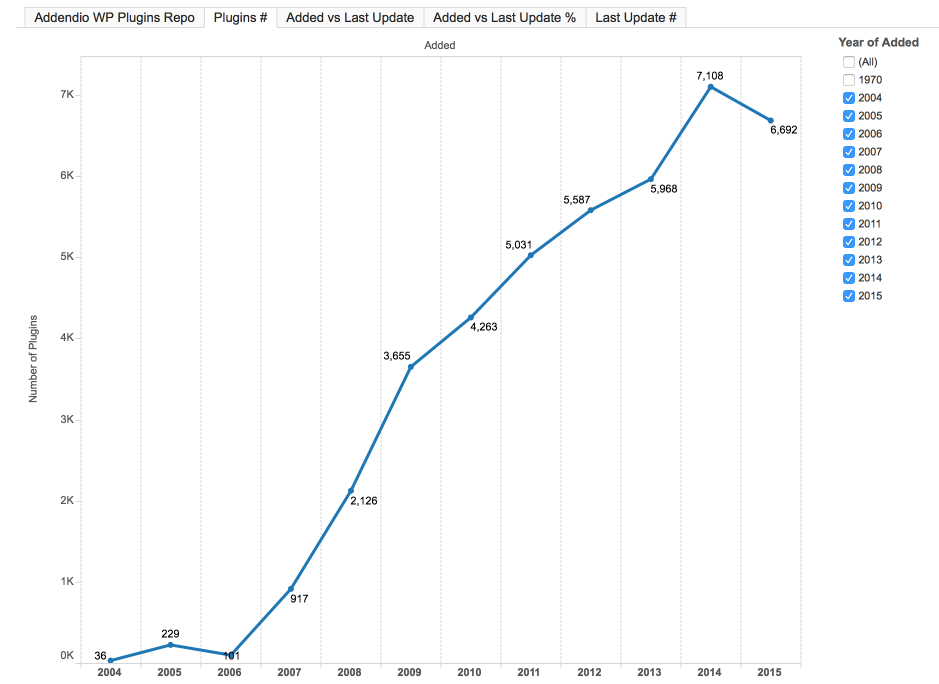Luca Fracassi, founder of Addendio, an alternative search engine for the WordPress plugin and theme directories published an in-depth look at the WordPress plugin directory. The post includes data that shows the number of plugins added to the directory per year, what year the plugins were last updated, and other metrics.
My favorite data point is the number of plugins approved per year. Based on this data, it looks like it’s going to be another record year for the directory. The five active team members including, Mika Epstein, Pippin Williamson, and Samuel Wood have their work cut out for them.

According to the data, about 22K plugins have been updated in the last 24 months representing a little more than half the directory. This means that approximately half of the plugins in the directory are displaying a notice that the plugin hasn’t been updated in two years.

Fracassi says that based on the data, “Two out of ten plugins are updated after three years. If you pick a free plugin that is released today, there’s a 80-90% chance that in three years time you won’t have any more updates.”
There are a number of possibilities as to why a plugin doesn’t get updated for two years or more.
- The developer burns out or moves on.
- The plugin doesn’t need an update.
- Lack of donations.
- Support is too much of a burden.
- No time.
The data doesn’t spell doom and gloom for users but it clearly shows that many plugins within the directory don’t have a long shelf life. I encourage you to read Fracassi’s post and review the data he’s collected. Also check out our guide on how to choose a WordPress plugin.
I thought WordPress was going to implement something with the repository where very old plugins would be automatically removed from the repository? IMO 3 year old plugins should be moved to some kind of archived repository or something like that – as least hidden from the main repository.